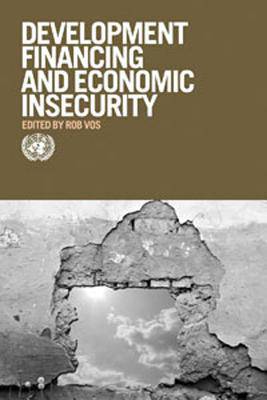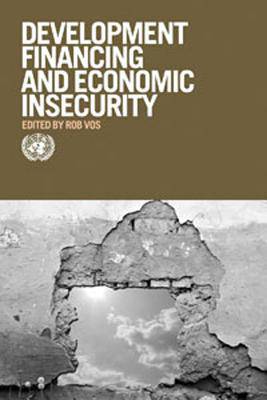
Door een staking bij bpost kan je online bestelling op dit moment iets langer onderweg zijn dan voorzien. Dringend iets nodig? Onze winkels ontvangen jou met open armen!
- Afhalen na 1 uur in een winkel met voorraad
- Gratis thuislevering in België vanaf € 30
- Ruim aanbod met 7 miljoen producten
Door een staking bij bpost kan je online bestelling op dit moment iets langer onderweg zijn dan voorzien. Dringend iets nodig? Onze winkels ontvangen jou met open armen!
- Afhalen na 1 uur in een winkel met voorraad
- Gratis thuislevering in België vanaf € 30
- Ruim aanbod met 7 miljoen producten
Zoeken
Financing for Overcoming Economic Insecurity
€ 220,45
+ 440 punten
Omschrijving
This book is available as open access through the Bloomsbury Open Access programme and is available on bloomsburycollections.com.
The world is witnessing the paradox of simultaneous increase in income and insecurity. According to available data, global average per capita income has increased in recent decades, while at the same time actual and perceived insecurity has also increased. This paradox is true for both developed and developing countries. However, the concrete form and causes of insecurity differs across these two groups of countries. To the extent that income levels in many developing countries are very low, economic insecurity in these countries takes a starker and chronic form. In Financing for Overcoming Economic Insecurity, leading experts examine the causes and consequences of rising economic insecurity and policy measures that can be adopted to overcome insecurity. The volume contains papers addressing issues of economic insecurity pertaining to both developed and developing countries and caused by both economic factors and natural hazards. It also discusses the issues at both macro and micro levels. The volume's focus on policy measures, such as redistribution and reinvestment of profit income in developed countries and imposition of capital control and promotion of micro insurance in developing countries, should be of much help to policymakers as well as researchers.Specificaties
Betrokkenen
- Uitgeverij:
Inhoud
- Aantal bladzijden:
- 264
- Taal:
- Engels
- Reeks:
Eigenschappen
- Productcode (EAN):
- 9781849665339
- Verschijningsdatum:
- 7/05/2015
- Uitvoering:
- Hardcover
- Formaat:
- Genaaid
- Afmetingen:
- 156 mm x 234 mm
- Gewicht:
- 544 g

Alleen bij Standaard Boekhandel
+ 440 punten op je klantenkaart van Standaard Boekhandel
Beoordelingen
We publiceren alleen reviews die voldoen aan de voorwaarden voor reviews. Bekijk onze voorwaarden voor reviews.










